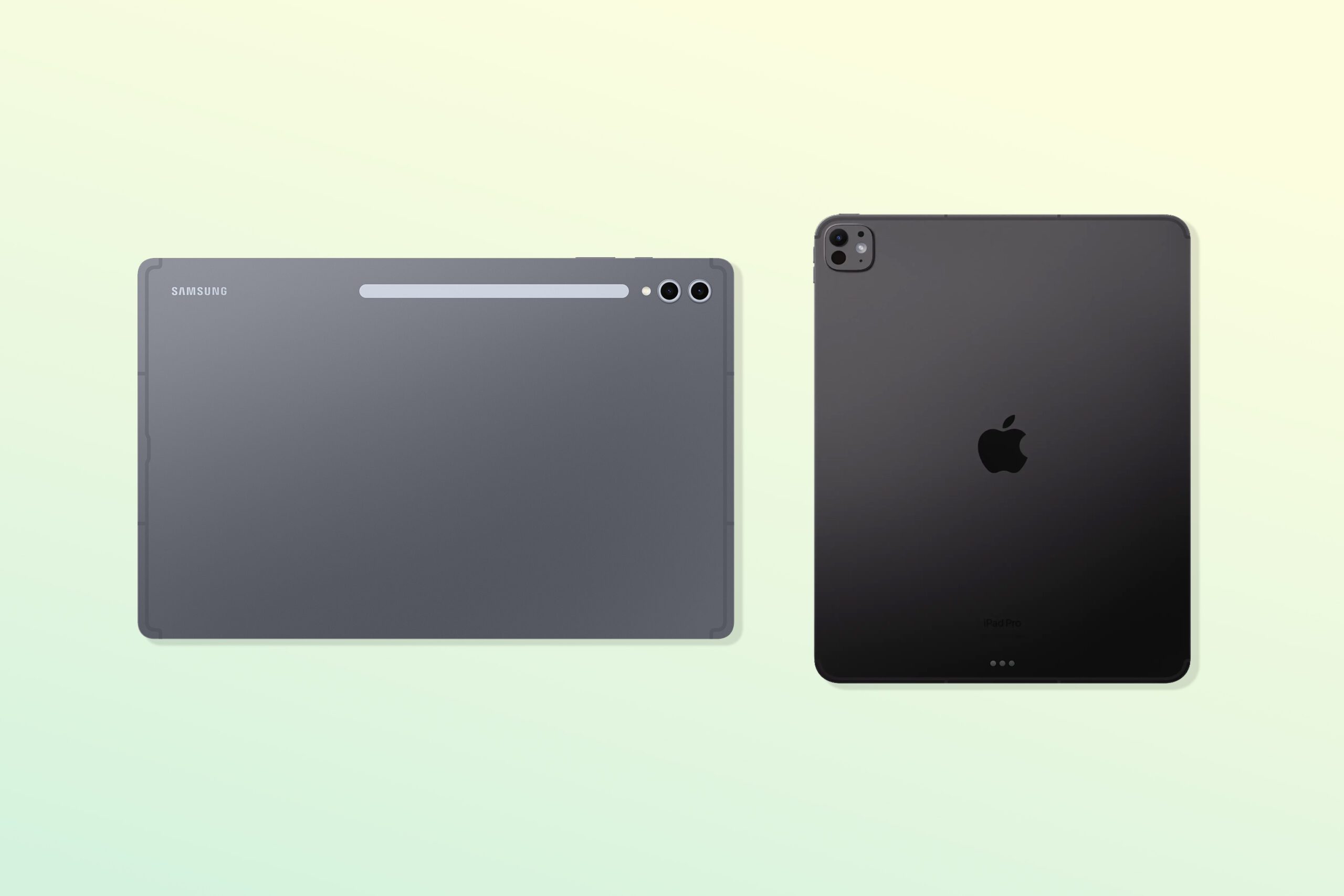In today’s fast-paced digital landscape, tablets have become indispensable tools for professionals seeking a blend of portability and performance. Whether drafting documents on the move, sketching designs, or managing complex workflows, the right tablet can significantly enhance productivity. Two flagship contenders in this arena are Apple’s iPad Pro M4 and Samsung’s Galaxy Tab S10 Ultra. Let’s dive into a head-to-head comparison to determine which tablet might best suit your professional needs.
Design and Display
The Galaxy Tab S10 Ultra boasts a sprawling 14.6-inch Dynamic AMOLED 2X display with a resolution of 2960×1848 pixels, offering vibrant visuals and a 120Hz refresh rate for smooth interactions. Its 16:10 aspect ratio is particularly suited for media consumption and multitasking. In contrast, the iPad Pro M4 features a 13-inch Tandem OLED display at 2752×2064 pixels. Apple’s innovative Tandem OLED technology delivers exceptional brightness, peaking at 1,600 nits, and colour accuracy, making it ideal for tasks requiring precise visual fidelity.
Performance
Under the hood, the iPad Pro M4 is powered by Apple’s M4 chip, an octa-core processor built on a 3nm process, ensuring top-tier performance and energy efficiency. This makes the iPad adept at handling intensive tasks like video editing and 3D rendering. The Galaxy Tab S10 Ultra, on the other hand, houses the MediaTek Dimensity 9300+ processor, also an octa-core chip but built on a 4nm process. While it delivers robust performance suitable for multitasking and demanding applications, benchmark tests indicate that the iPad Pro M4 holds a performance edge over its Samsung counterpart.
Memory and Storage
Samsung’s Galaxy Tab S10 Ultra comes with 12GB of RAM and offers storage options ranging from 256GB to 1TB, with the added advantage of microSD expansion up to 1.5TB. This flexibility is beneficial for professionals dealing with large files or extensive media libraries. The iPad Pro M4 starts with 8GB of RAM (upgradable to 16GB in higher storage variants) and provides storage capacities from 256GB up to 2TB. However, it lacks expandable storage, which may be a consideration for users requiring extensive space.
Operating System and Software
The choice between iPadOS and Android is pivotal. The iPad Pro M4 runs on iPadOS 17, offering a seamless ecosystem with features like Stage Manager for enhanced multitasking and a vast array of optimized apps for creative and professional tasks. The Galaxy Tab S10 Ultra operates on Android 14, providing greater customization and compatibility with a wide range of applications. Samsung’s DeX mode further transforms the tablet into a desktop-like experience, appealing to users seeking versatility.
Battery Life and Charging
Equipped with an 11,200mAh battery, the Galaxy Tab S10 Ultra supports 45W fast charging, ensuring prolonged usage and quick recharges. The iPad Pro M4 features a slightly smaller battery but benefits from the M4 chip’s energy efficiency, delivering comparable endurance. However, its 18W fast charging is slower compared to Samsung’s offering, which might influence users who prioritize rapid power-ups.
Accessories and Additional Features
Both tablets support stylus input, enhancing their utility for note-taking and creative endeavours. The Galaxy Tab S10 Ultra includes the S Pen in the box, offering immediate value, whereas the Apple Pencil for the iPad Pro M4 is sold separately. Additionally, the Galaxy Tab S10 Ultra boasts an IP68 rating for water and dust resistance, providing durability advantages over the iPad Pro M4.
Conclusion
Choosing between the iPad Pro M4 and the Galaxy Tab S10 Ultra hinges on individual preferences and professional requirements. The iPad Pro M4 excels in display quality and processing power, making it a formidable tool for creative professionals deeply integrated into the Apple ecosystem. Conversely, the Galaxy Tab S10 Ultra offers a larger display, expandable storage, and greater customization, appealing to users seeking flexibility and versatility. Both devices stand at the pinnacle of tablet technology, promising to elevate productivity and adapt to the diverse demands of modern professionals.




